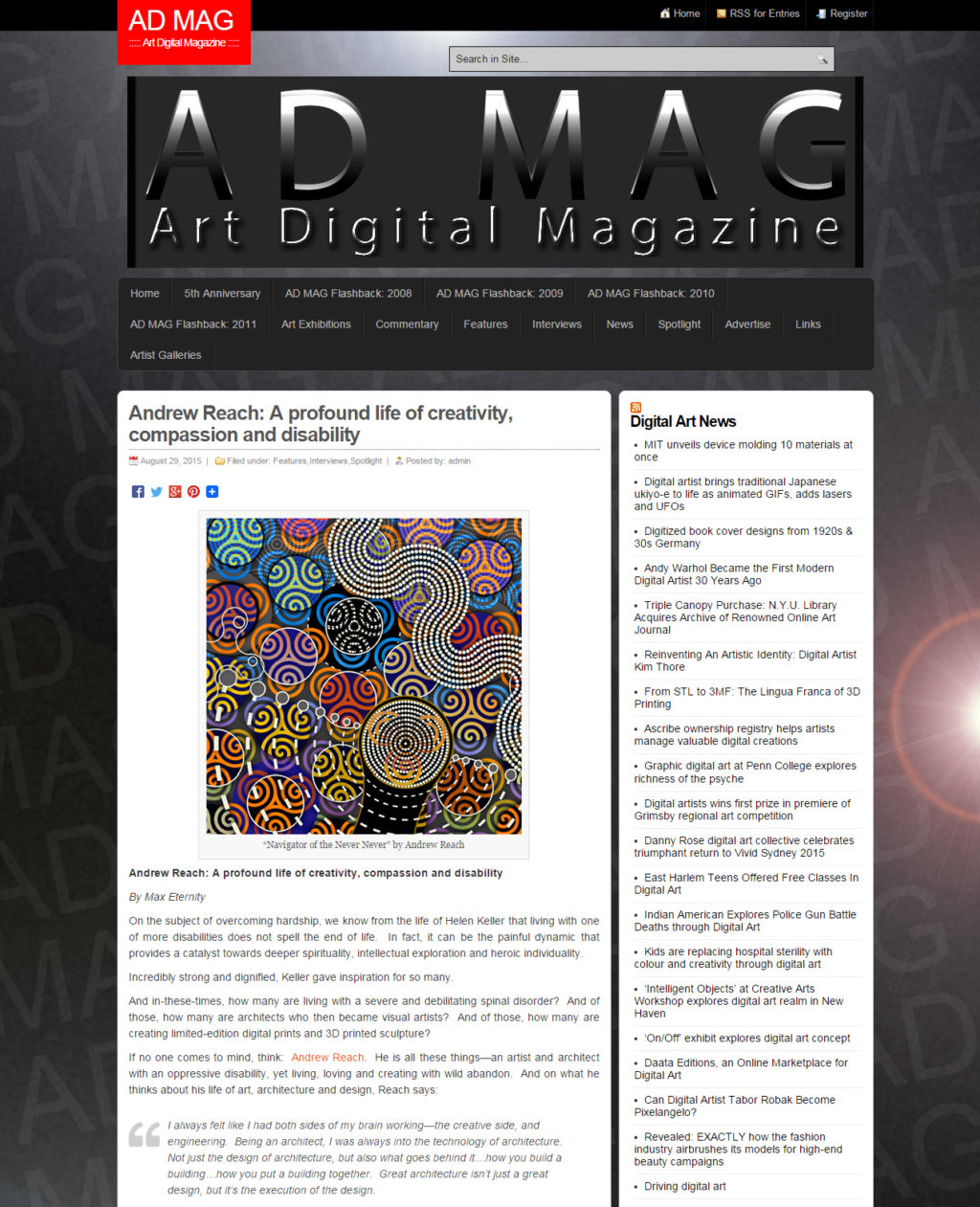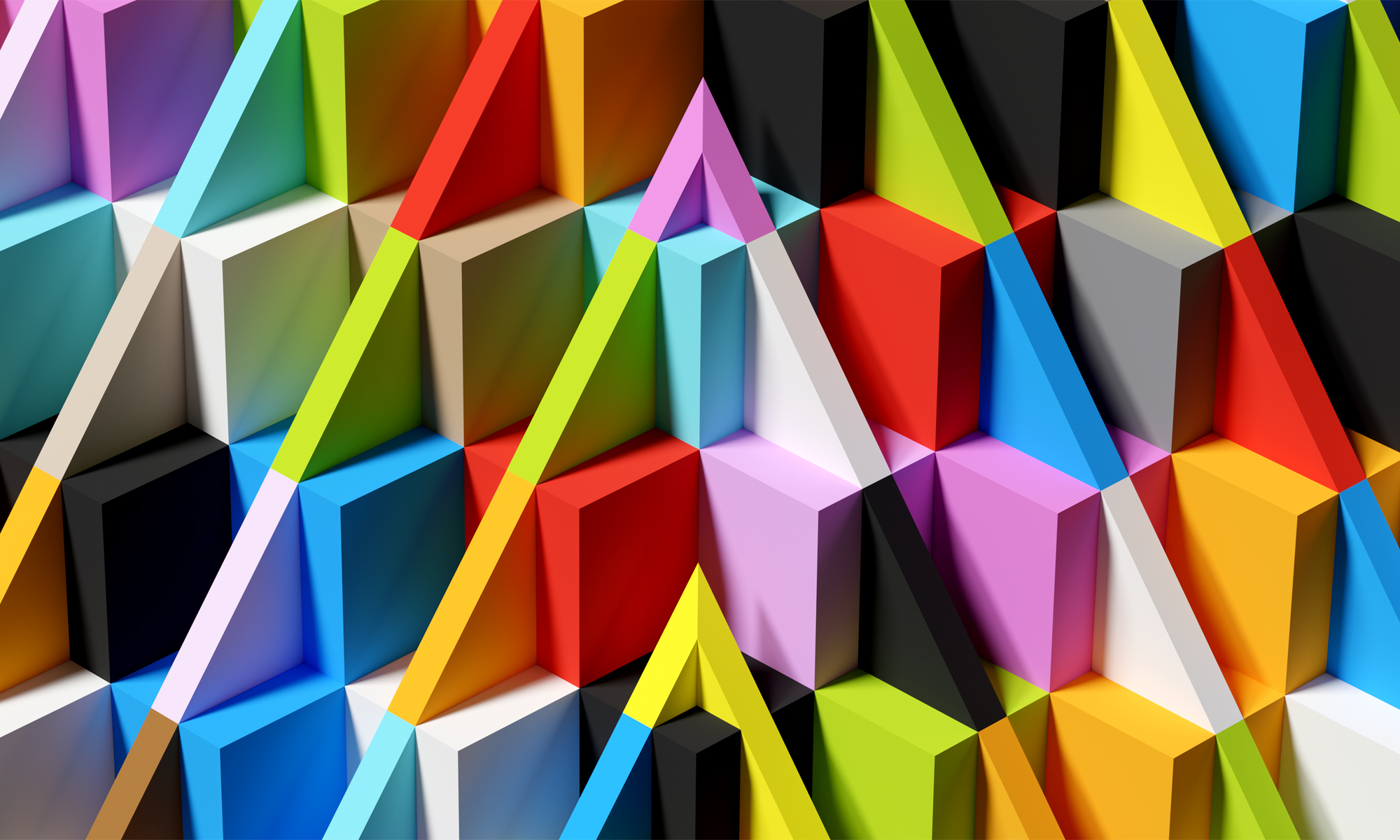I’m honored to have been interviewed by Max Eternity, publisher of AD MAG (Art Digital Magazine).
click here to read interview


Abstract Artist Working in the Realm of Digital Media
I’m honored to have been interviewed by Max Eternity, publisher of AD MAG (Art Digital Magazine).

There are six full interlocking circles (divided into quadrants) with 2 half interlocking circles (divided into 2 quadrants) at the top and bottom;
6 + (.5 x 2 + .5 x 2) = 8 circles.
The circles overlap the adjacent circle quadrants. The color is changed at these intersections forming two football shaped pieces and two wedge shaped pieces. Each full circle has eight pieces in total. Overlaid on the two top and two bottom circles are gear like shapes in grayscale. The intersections of the gears over the intersecting quadrants form eight shaped pieces. All the shapes added up equals 80 pieces.
Printing on an Epson GS6000 Eco Solvent Printer on canvas
I use this printer for specific works that I want to achieve the maximum color intensity that I can’t get on my Epson 9600 aqueous pigment printer. Even though it’s a solvent printer, Epson has taken out the hard metals out of the solvent inks and therefore can classify it as an eco friendly printer. With this printer I don’t have to worry about applying a UV laminate coating as UV protection is built into the inks. This is what kept me from printing on canvas before this printer because applying these coatings was too difficult for me because of my disability. I can now achieve incredible canvas prints that are archival fine art quality with a machine in my home.
Finally got around to printing “The Blossoming” created in 2011. It’s one of my larger works at 54 x 95 inches. Because of the rich saturated colors, decided to print this on the Epson GS6000 solvent printer on canvas. Really happy with the rich saturated color fidelity the printer is able to produce.
![TheBlossoming-ModernTimes2-1-x[1]](https://andrewreach.com/wp-content/uploads/2015/08/TheBlossoming-ModernTimes2-1-x1.jpg) The Blossoming, 2011
The Blossoming, 2011
Archival Epson Ultrachrome GS Print on Canvas,
54 x 95 inches, edition of 3